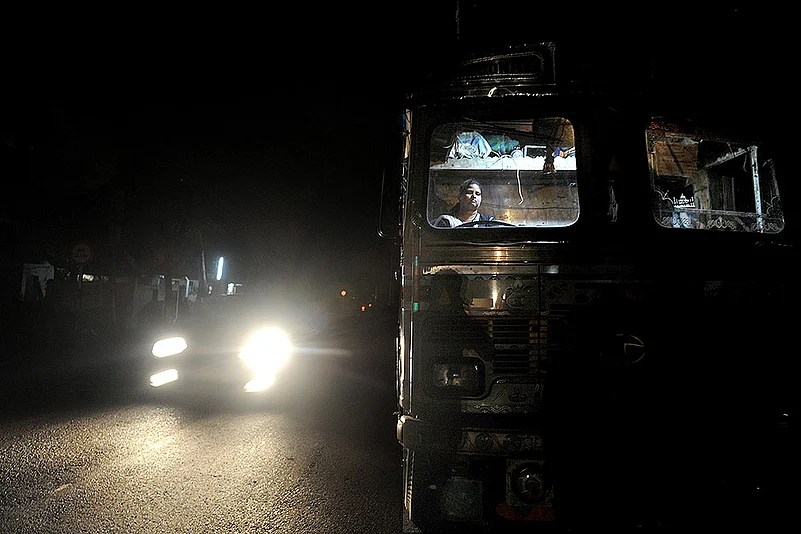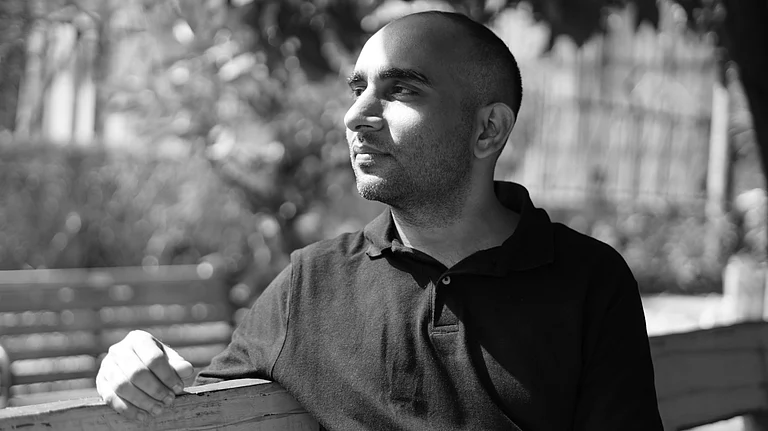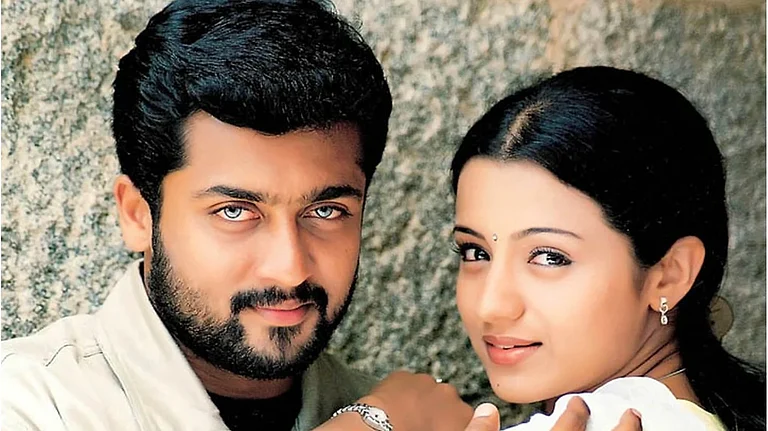“First gear,” shouts the commander, sitting astute on the co-passenger’s seat. The lieutenant kicks down the clutch, and pushes the gear, propelling the ten-wheeled giant ahead. Tabassum Ali, the first woman in India to drive such a monster, dressed in summer uniform—a crisp kurta-pajama, a dupatta tied deftly across one shoulder—can handle the vehicle well. But her father, Shabeer Ali, still gives her driving tips when he’s occupying the navigator seat. She glances at her boss as the overloaded carrier screams to be shifted to the next gear, the pounding of its cylinders increasing at a crescendo now. “Can’t you see it needs the next gear,” barks her father. “We have to get the consignment today”. Suddenly the motor comes to a screeching halt as the truck, she has named it Sherni, slumps to one side. There is a puncture in one of those huge tyres.
For Tabassum, it’s just another hurdle in a busy day. The 28-year-old from Mandla in Madhya Pradesh drives trucks for a living, for at least 20 days a month. It’s a gruelling job and the pay is not that great, about Rs 35,000 a month, but it’s what she loves doing. It started off, as many things do, by chance—on a summer morning when an urgent consignment had to be delivered. Tabassum’s father fell ill and her elder brother was away on his bus tours. This left her, the only other driver in the family, to do the job. “I was the only one who knew how to drive, and I remembered my dad telling me ‘if I could drive a car, I could drive a truck’,” says Ali. He lay by her side the whole 100 kilometers up and back, giving her instructions all along, as he does even now, on the few occasions they get to share a ride together.
Video: Tribhuvan Tiwari; Editing: Suraj Wadhwa
Most of the time it is Tabassum on her own, traversing the roads of her state, and the neighbouring ones of Chattisgarh. Having completed her Bachelor degree in Arts, Tabassum took to driving one of the family’s two trucks to help out in times of a financial crunch. Her mother’s failing health consuming much of the family’s income, and a family of ten to feed, meant that her father and elder brother alone could not make ends meet. “We have had to rent a flat in Jabalpur to be closer to the hospitals, and take mummy to endless dialysis sessions to help cure her kidney problems,” says Shabnam, one of Tabassum’s elder sisters. In the business of transport for over two generations, Tabassum and her father, manage the two trucks owned by the family, and use them to deliver rice loads to-and-from the mill for government distribution. Her elder brother drives buses that go on teerth yatras around the country.
The fourth of eight siblings, Tabassum hates being home and doing housework. She enjoys her time in the truck, out on the roads. “A regular work day starts as early as 5 am when we have to get the truck to the mill for unloading,” she says. Waiting for it to be unloaded and loaded can be long. It can even be days before her turn comes. There have been times when she couldn’t return home for days—spent nights in the truck, and cooked on the roadside, bathing being a far-off dream.
In times like these she only has her help to keep her company, and of course, Salman Khan, whose films she diligently downloads on her phone. She even has a repository of Bollywood tunes on a pen drive that is continuously playing while she is on the road. Her longest trip is to Raipur in Chhattisgarh, 350 kilometers from her hometown. It takes her many days even though she does not believe in taking long breaks while on road. “Driving at night is extremely convenient. There is little traffic,” says Shabeer Khan, Tabassum’s father. Apart from animals of course! Tabassum casually mentions the likes of jackals, hyenas, wild boar, and some others. It is these that one needs to be more careful of, she says, brushing off any other fears. So far she has never had a bad experience. In fact, she says other truck drivers have gone out of their way to help her many times. She does carry a stone, and a spare knife, just in case. “Main khud goondi lagti hu (I look quite intimidating myself),” she laughs.
Being the first woman driver of a ten-wheeled truck ensures that she receives a lot of respect from people around her. “To be able to handle a truck is not easy. Add to that an overloaded vehicle, which is usually the case with trucks carrying ‘dhaan’, the balancing is a very difficult feat,” points out a neighbour who has taken driving lessons from Tabassum. She has even won a few community awards for women empowerment. But, more importantly, she is quick to mention that she has never felt any different from other truck drivers on the road, so much so that there isn’t a pay disparity between genders. “It’s all one big community, and I have never been made to feel like I am not fit for the job,” she says. She reminisces about the times she spent around a bonfire with other drivers, cooked meals with them, and sang songs to no tune. “They have always been around in case of any help,” she adds.
Not that she needs it really. “When Chutka (as her siblings endearingly call her) is back she likes to relax, do a little farming, if at all,” laughs her elder sister Tarana Ali. “Or learn the mechanics of the truck with father.” She can do most of the minor repairs on her own with her help on the side. “I cannot clean or tidy up after though,” she says.
Tabassum can hardly be home for a few days before she tires out of domestic life. But the smile when the flat tyre ensured delaying the delivery to another day tells otherwise. “I am desperate to do something else,” she whispers. Tabassum’s mother passed away last December, and ever since she has been hoping to get out of the rut. “It is okay for sometime, but how long can I go on with this rigorous routine with little pay,” she adds. Tabassum has been preparing for the Public Service Commission (PSC) exams, but she really hopes to run her own driving school someday. After all, driving does run in her blood. And having taught a fair few people how to drive (cars, not trucks, she has been unable to inspire more women to take to it yet), she hopes a successful private venture will help pay for the corroding tyres on her truck. But for now, it’s only she and her Sherni, getting fixed for another long haul.
Text by Stuti Agarwal, Photographs: Tribhuvan Tiwari


























